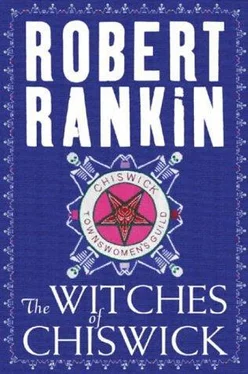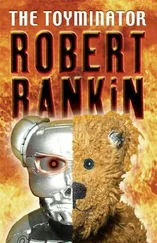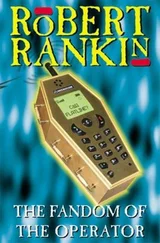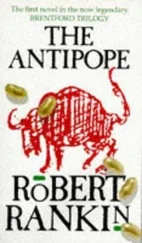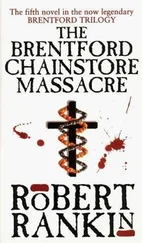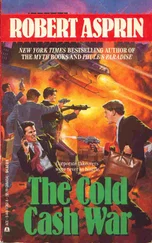“So what were you doing in the archive?”
“I can’t tell you that,” said Will.
“Well I can tell you this. Don’t go down there again. And don’t go near those women. Do we understand each other?”
“We do,” said Will. “Can I buy you lunch?”
“You can,” said Tim. “And I’ll expect you at my housing unit at eight o’clock sharp on Saturday night. Try not to get yourself into any trouble before then, okay?”
“I’ll try,” said Will. “I’ll try.”
Tuesday and Wednesday and Thursday came and went and these days were very dull indeed for Will. Dull they were, and worrying too. Will worried for the painting. Would someone uncover his hiding place? A cleaner, or a restorer, perhaps? Or would the iconoclastic women return? Might they have found out that they’d destroyed the wrong painting? Would investigations ensue? His fingerprints and DNA would be upon the Dadd. He should have worn gloves. He should never have got involved at all. Perhaps it hadn’t been a risk worth taking. Will perched on the edge of his seat in a permanent state of tension. Will worried and fretted and worried some more. Gladys worried for Will.
“You’re not yourself, little manny,” she told him, reaching forth a podgy hand to stroke at his arm. “Come out with me this evening, I’ll cheer you up.”
“Thanks,” said Will. “But no thanks.”
“But Friday night is Rock Night at the Shrunken Head. Your kind of thing, Will, Retro Rock, twentieth-century stuff. The Apes Of Wrath are playing and Violent Macaroni and Foetus Eater, and Lawnmower Death, and The Slaughterhouse Five.”
“Not my cup of coffee,” said Will. “But Tim McGregor in Forward Planning loves that kind of business. And between you and me, I think he’s somewhat enraptured by you. He keeps mentioning your name in the canteen.”
“Really?” Gladys primped at her lemonly-tinted toupee. “Do you really think so?”
“Absolutely,” said Will. “But don’t tell him that I told you.”
“No, I won’t.”
Will twiddled his computer rat and viewed more boring Rothko. Dull dull dull it was, and Will remained as worried.
He worried until it was time to go home. Then he went off home, still worrying.
And he did have good cause to worry. Crime was hardly commonplace in these days after the day after tomorrow. And the reason for this was the almost superhuman efficiency of the Department of Correctional Science.
A one hundred per cent clean-up rate.
In former unenlightened days there had been a “police force”, armed officers of the law who pursued and arrested malcontents. These were “brought to justice” and then housed in prisons. This had proven to be a most inefficient system. Many malcontents managed to evade capture. Others, although captured, evaded prison, through the intercession of barristers working on their behalf. Others, who had actually ended up in prison, had their sentences cut for “good behaviour” and returned once more to a life of crime.
In the year 2050, however, a visionary appeared on the scene in the shape of a certain Mr Darius Doveston. Mr Doveston was a geneticist. In fact it was Mr Doveston who had first formulated the Retro drug. Mr Doveston’s theory was that criminality was inherited. Dishonest parents passed on their dishonesty to their offspring, who inherited it through their genes and through “learning by example”. Mr Doveston proposed a cure for crime. It would take fifty years, he said, but when the fifty years were up, there would be no more crime – because there would be no more criminals.
Mr Doveston’s solution to the crime problem was simplicity itself. And history does record that the simple solution (dramatic as it sometimes must be) is often the most effective.
His solution was the compulsory sterilisation of all first-time offenders. If villains couldn’t breed, reasoned Mr Doveston, then they couldn’t breed more villains.
It was, of course, a stroke of pure genius.
But there are always those with motives of their own who will find something to complain about, even with such a stroke of genius as this. There was a vast public outcry. Sterilisation was some kind of punishment, went this outcry, but not much of one. Those sterilised villains would inevitably continue with their villainy. In fact, embittered as they might well be by their sterilisation, they might even broaden the scope of their villainy. And having to wait fifty years for a crime-free society? That was far too long!
Mr Doveston gave the matter some further thought.
Perhaps he had been a trifle hasty. He reconsidered and then drew up a plan, which pleased everyone, with the possible exception of the criminal classes.
Mandatory death penalty for first-time offenders.
Mr Doveston submitted his proposal in the form of a Private Member’s Bill to the House of Commons. Within two weeks of it being passed and put into the statute books, the crime figures virtually halved. Within two years, crime was all but non-existent in the British Isles.
Which is why Will had good cause to worry.
And had Will known what was presently on the go at the Department of Correctional Science, he would have had even more cause to worry. But for quite another reason.
The DOCS was housed only a short tram ride from the Tate, just across the long poisoned Thames, in a magnificent black structure of obsidian and tinted glass, rising a mere three hundred storeys, fashioned to resemble an old time policeman’s helmet. Most of its floors were now given over to recreational areas, casinos, corporate whorehouses and shopping malls. The actual DOCS occupied the three hundredth floor. It was run by a team of five men, one of whom was a token woman.
The head of the department, the Chief, was a black man by the name of Trubshaw. The tradition that a black man should always fill the role of police chief, was a long one, dating back to 1970s America, where, although in real life an impossibility, in the movies it was inevitably the case. It was a “Hollywood” thing.
Beneath the Chief was the Chief Inspector, a white man named Sam Maggott, and beneath Sam, four policemen, one of whom was a token woman. The role was taken on a rota basis. This week Officer John Higgins was the token woman, and Officer John Higgins was on the telephone.
“What?” she was saying. “What? What? What?”
Words poured into the ear of Officer John, words of a distressing nature. At length the stream of words ceased and Officer John replaced the telephone receiver. “Damn,” she said, and “damn and blast.”
Chief Inspector Maggott looked up from his doings, which were of the crossword persuasion and examined the young Officer, a vision in blue serge damask and dainty high heels. “Did I hear you say ‘damn’?” he enquired.
“You did, sir,” said Officer John, adjusting her wig.
“And what would be the cause of this damning?” Sam Maggott jiggled his girth about and rippled a jowl or two.
“It would seem, sir, that we have a crime on our hands.”
“A crime?” said Maggott. “A crime ?”
“A crime, sir. The first of the year and a big one too. A murder by the sound of it.”
“ A murder ?” Sam’s flesh rippled in many directions. “We haven’t had a murder since—”
“Third of Apple, [3] Corporate sponsorship of months had been all the rage in 2207, but had since been discontinued, because it was stupid.
twenty-two o-seven,” said Officer Denton Colby, who was good at that kind of thing.
“Fifteen years ago,” said Sam. “This is most upsetting. Are you certain that it wasn’t just an accident, or something?”
Читать дальше
